Best movies like Michel Foucault par lui-même
A unique, carefully handpicked, selection of the best movies like Michel Foucault par lui-même Starring André Glucksmann, Maurice Clavel, Michel Foucault, and more. If you liked Michel Foucault par lui-même then you may also like: Voyage of Time: Life's Journey, Not My Type, Omar Khayyam, Jutra, The Libertine and many more popular movies featured on this list. You can further filter the list even more or get a random selection from the list of similar movies, to make your selection even easier.
A voyage to the center of the thought of Michel Foucault (1926-1984), a tireless explorer of the margins, a brilliant and atypical thinker, through excerpts from his books and lectures, and the use of images that resonate with them.
You may filter the list of movies on this page for a more refined, personalized selection of movies.
Still not sure what to watch click the recommend buttun below to get a movie recommendation selected from all the movies on this list
Not My Type
Clement, a young philosophy teacher, is sent to Arras for a year. He meets Jennifer, a pretty hair stylist, and the two freely share their hearts and bodies as they try to overcome the cultural and social divide between them.
Omar Khayyam
Omar Khayyam was one of the greatest Persian poets. He was also a brilliant mathematician. Though his quatrains were written in the 11th century, they are still popular the world over. The details of his life are unknown, so this movie invents a biography for him and includes in it his real achievements - the invention of a new calendar and the penning of those epigrammatic poems. This film has him romancing a sultan's bride and foiling the assassin sect's plot to kill the sultan's son.
Jutra
Through the magic of editing and animation, Claude Jutra is seen in dialogue with himself at various stages of his life – becoming the spirited narrator of his own biography. Excerpts from family films, interviews, and clips from some of Jutra's well-known works are seamlessly intertwined with these sequences, forming a portrait of a man whose life was devoted to creativity. Jutra is simultaneously a homage, a love letter to cinema, and the dramatic story of a brilliant artist whose life was all-too-short.
The Libertine
French philosopher Denis Diderot produces the first encyclopedia while indulging in 18th-century decadence.
My Night at Maud's
The rigid principles of a devout Catholic man are challenged during a one-night stay with Maud, a divorced woman with an outsize personality.
The Image Book
In Le Livre d’Image, Jean-Luc Godard recycles existing images (films, documentaries, paintings, television archives, etc.), quotes excerpts from books, uses fragments of music. The driving force is poetic rhyme, the association or opposition of ideas, the aesthetic spark through editing, the keystone. The author performs the work of a sculptor. The hand, for this, is essential. He praises it at the start. “There are the five fingers. The five senses. The five parts of the world (…). The true condition of man is to think with his hands. Jean-Luc Godard composes a dazzling syncopation of sequences, the surge of which evokes the violence of the flows of our contemporary screens, taken to a level of incandescence rarely achieved. Crowned at Cannes, the last Godard is a shock film, with twilight beauty.
Is the Man Who Is Tall Happy?
A series of interviews featuring linguist, philosopher and activist Noam Chomsky done in hand-drawn animation.
Hannah Arendt
HANNAH ARENDT is a portrait of the genius that shook the world with her discovery of “the banality of evil.” After she attends the Nazi Adolf Eichmann’s trial in Jerusalem, Arendt dares to write about the Holocaust in terms no one has ever heard before. Her work instantly provokes a furious scandal, and Arendt stands strong as she is attacked by friends and foes alike. But as the German-Jewish émigré also struggles to suppress her own painful associations with the past, the film exposes her beguiling blend of arrogance and vulnerability — revealing a soul defined and derailed by exile.
The Puritan
A religious fanatic finds his entire life and philosophy turned upside-down as he falls in love with a girl and kills her in a jealous rage. His search is for peace of mind and a desire to justify the murder of the girl to himself. His mind becomes distraught as he gropes trying to rationalize his deed and his world falls apart around him. A police inspector patiently and tirelessly stays on Barrault's trail, without putting him under arrest, though convinced he is the murderer, and waiting for the moment when he feels Barrault will break under the strain of his own religious fanaticism (IMDb).
Possibility of an Island
La Possibilité d'une île is a 2008 film directed by Michel Houellebecq, loosely based on his 2005 novel The Possibility of an Island.
Gauguin: Voyage to Tahiti
In 1891, the French painter Paul Gauguin leaves Paris and travels to Tahiti to renew his art as a free man, far from the European artistic conventionalism. On his journey of discovery, he faces solitude and disease, but he also knows the beauty of wild nature and the love of Tehura, a young native girl who becomes his wife and model.
Jackie Chan: Building an Icon
Jackie Chan is a true icon of Asian and Chinese culture. Over a 45-year-long career, he has carved a niche for himself as an actor, stuntman, director, and screenwriter, but also singer and formidable businessman. After starring in almost 200 films, Chan has reconciled fans of genre film and Hollywood blockbusters, whilst bridging the gap between Asian and Western cinema. Through film excerpts, archive footage and images, and an offbeat approach inspired by the visual codes of the golden age of kung fu films, this documentary will take a look back at the creation of a popular hero who has come to be an icon for China, and the entire Asian continent.
Hervé Guibert, la mort propagande
From this "inexorable disease", Hervé Guibert did not recover. The miracle he had so much hoped for did not happen. But, before his death in 1991, three years after learning of his HIV-positive status, he engraved in his literary and photographic work "the places of [his] suffering", "the stations of [his] way of the cross". With his thin body and sunken cheeks, the handsome man with curly hair that he was, the one whose clear gaze radiated from the seaside photos, fought a fierce battle against AIDS. A fight of every moment against the decay of the body, observed and commented with a methodical care in his autobiographical novels, in particular "To the Friend Who Did Not Save My Life" (1990) and "The Compassionate Protocol" (1991), and of which he testified on television on the set of "Apostrophes"...
Balkan Baroque
Balkan Baroque is a real and imaginary biography of the Yugoslavian performance artist Marina Abramovic. Rather than a mechanical reproduction of the artist's work, the film tries to create a new reality by translating the performances into cinematographic images that intensify the fictional context of the film. Abramovic plays herself, but ,appearing in multiple forms, blurs her own identity. Memories and fantasies intermingle with day to day rituals. The chronological narrative often breaks to reflect the interior voyage of the protagonist from the present to the past and back to the present. The result is a visually impressive film. Balkan Baroque had its world premiere at the International Film Festival Rotterdam, 1999.
Edgar Morin, journal d'une vie
A philosopher of complexity, Edgar Morin has renewed the figure of the intellectual. Born Edgar Nahoum in Paris in 1921, he joined the Communist Resistance in 1942, where he adopted the pseudonym Morin, which he never abandoned. Author of about a hundred books, doctor "honoris causa" of about forty universities in the world, he never stopped promoting human brotherhood.
Foucault Against Himself
In both his private and public life, Foucault often contradicted himself, especially when his ideas collided with the institutions where he worked. Contemporary critics and philosophers reframe their legacy in an effort to build new ways of thinking about his struggle against the mechanisms of domination within society, demonstrating how the conflict lies at the heart of his life and work.
Alice and the Mayor
The mayor of Lyon, Paul Théraneau, is in a delicate position. After 30 years in politics, he is running out of ideas and is faced with a feeling of existential emptiness. To overcome this, Paul hires a young and brilliant philosopher, Alice Heimann. Then follows a dialogue between two diametrically opposed personalities who will turn their certainties upside down.
The Fabulous Adventures of the Legendary Baron Munchausen
The Fabulous Adventures of the legendary Baron Munchausen is a French animated feature from Jean Image of 1978, inspired by the adventures of Baron Munchausen. Baron Munchausen is wont to bring his friends to tell them about his imaginary exploits.
C'est jeune et ça sait tout !
When Charles Le Braque learns that his boss' 17 years old daughter is pregnant, he fears that his 16 years old nice Joel from France, who's spending her vacation with them in Canada, might fall into the same trap. So he and his wife decide to give her the lecture of plants and bees... but it turns out that she's already well informed, gives them a lecture about simultaneous orgasms. She inspires the sexually repressed couple to start experimenting with "modern" forms of sex.
Jack London, An American Original
A documentary with played scenes and real archive images about the adventurous life of American writer Jack London, creatort of the novels "Call of the Wild", "Wolfsblut" and "The Sea Wolf", who lived as a tramp, prospector, seaman, rancher, war reporter and as a committed member of the Socialist Party of America (SPA). He experienced the socio-political upheavals from the end of the pioneering era to the First World War.
Godard Cinema
Jean-Luc Godard is cinema, its quintessence. Just turned 91, he has made more than 140 films. We hate him as much as we worship him. Where does his aura come from? From legendary films of course, but also from Godard himself.
Bernadette Lafont, and God Created the Free Woman
A journey in the company of Bernadette Lafont, French Cinema’s most atypical actress. Tracing her career from pin-up girl, to New Wave model of sexual freedom, to drug-dealing granny in the film Paulette, by way of La Fiancée du Pirate and Les Stances à Sophie, this film pays tribute to her extraordinary life and artistic odyssey. Her grand-daughters, Anna, Juliette and Solène, revisit the dreams of Bernadette, in the family home in the Cevennes region where they, like her, grew up. Her close friends, Bulle Ogier and Jean-Pierre Kalfon, reminisce on their artistic and human complicity. Throughout the film, Bernadette Lafont in person, with her inimitable character actress voice, re-evokes a life in cinema marked with insolence, courage and freedom.
Vincennes, l'université perdue
Recounts the epic of Vincennes Experimental University Center, from its creation after the events of May 68 until its demolition in the summer of 1980. To talk about Vincennes is to relive unique ten years of intense intellectual and political extravaganza, educational and artistic inventiveness, utopias, hopes, and betrayals that marked the history in a unique place, the forest with the eponymous name.
The Purple Taxi
With his mauve taxi, the old philosopher Dr. Seamus Scully runs around the small green roads of the south of Ireland, becoming confident of his patients, while trying to help them find their way.
My Case
Manoel de Oliveira plays his film in three stages: the first part - a play, the second can be roughly defined as a silent film (with the behind the scenes read excerpts from Beckett works), but in the end the director brilliantly performs the same material of the avant-garde exercise. Surprisingly, a joke, repeated three times, each time everything sounds fresh and develops into an almost verbatim adaptation of the biblical "Book of Job" - a spectacular point in a parable about how hard to empathize with other people's misery, when you have your own.
Louis XV, le Soleil noir
How Louis XV, a young king loved by his people, sensitive to the artistic and intellectual turmoil of his century (that of the Enlightenment), will end his reign in decay and hatred? Only fifteen years after his death, it's the Revolution.
Race d'Ep!
"Race d’Ep!" (which literally translates to "Breed of Faggots") was made by the “father of queer theory,” Guy Hocquenghem, in collaboration with radical queer filmmaker and provocateur Lionel Soukaz. The film traces the history of modern homosexuality through the twentieth century, from early sexology and the nudes of Baron von Gloeden to gay liberation and cruising on the streets of Paris. Influenced by the groundbreaking work of Michel Foucault on the history of sexuality and reflecting the revolutionary queer activism of its day, "Race d’Ep!" is a shockingly frank, sex-filled experimental documentary about gay culture emerging from the shadows.
The Extraordinary Voyage
An account of the extraordinary life of film pioneer Georges Méliès (1861-1938) and the amazing story of the copy in color of his masterpiece “A Trip to the Moon” (1902), unexpectedly found in Spain and restored thanks to the heroic efforts of a group of true cinema lovers.
I, Pierre Rivière, Having Slaughtered My Mother, My Sister and My Brother…
Based on documents compiled by leading French philosopher Michel Foucault, this unique and original film charts the gruesome events which took place in a Normandy village in 1835, when a young man, Pierre Rivière, murdered his mother, sister and brother before fleeing to the countryside. With a cast made up of real-life villagers from the area where the events took place, the detailed re-enactments and careful attention to the gestures of their ancestors serve to create an intense and sometimes disturbing atmosphere of hyper-realism. Details of the crime and of the trial that followed are told from varied perspectives, including the written confession of Pierre himself, and form a rich and complex narrative that interrogates the concepts of “truth” and “history”.

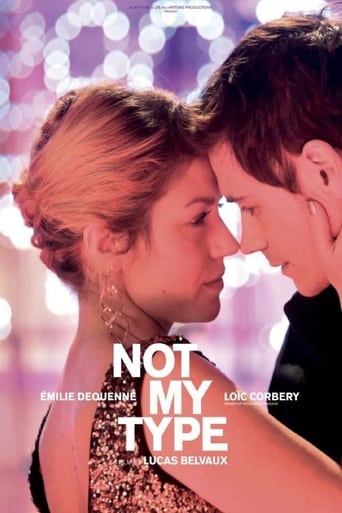





















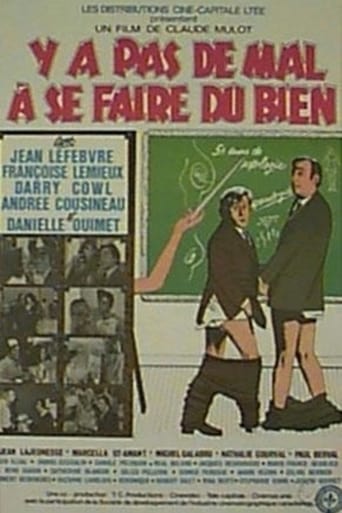




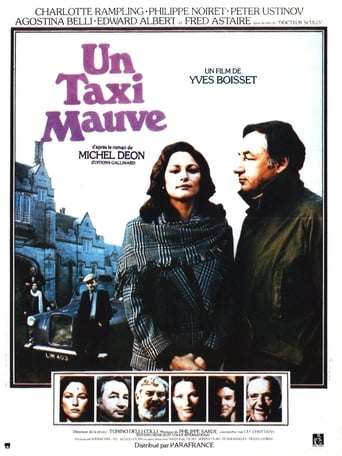





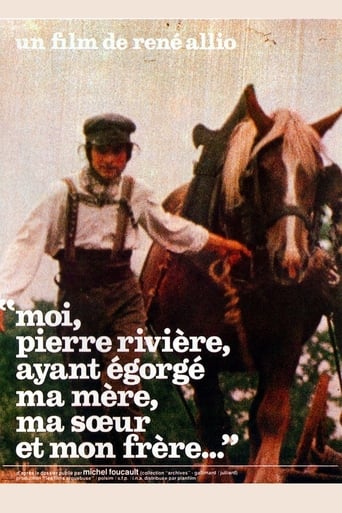

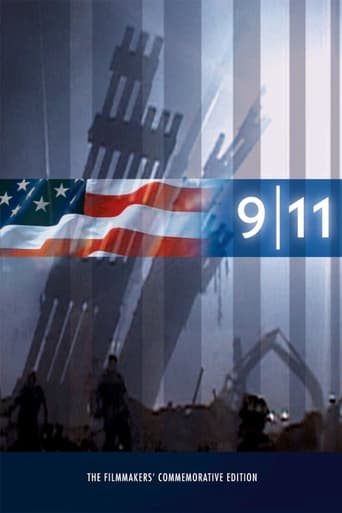

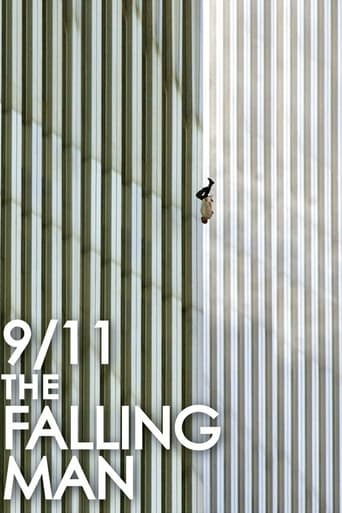
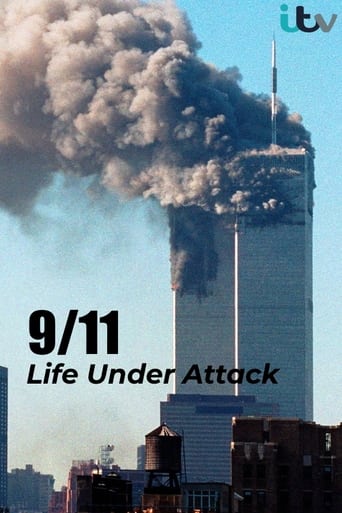
Voyage of Time: Life's Journey
A celebration of the universe, displaying the whole of time, from its start to its final collapse. This film examines all that occurred to prepare the world that stands before us now: science and spirit, birth and death, the grand cosmos and the minute life systems of our planet. (Wide release version with narration by Cate Blanchett.)